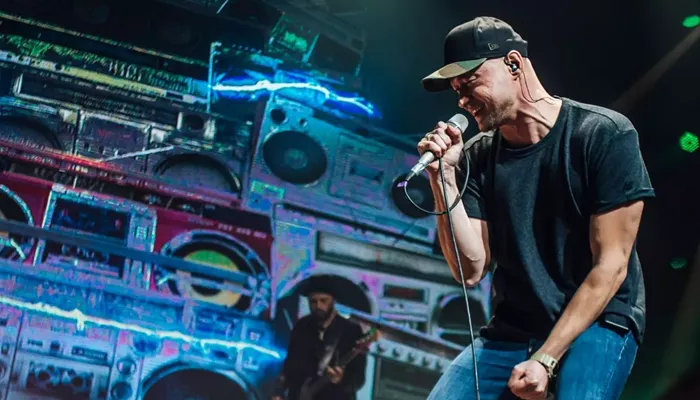Ukrainian musician Andriy Khlyvnyuk, known as the lead vocalist of BoomBox and a soldier in Ukraine’s Territorial Defense Force, has refused to accept the prestigious Magnitsky Human Rights Award. The Nov. 18 decision came in protest against his co-recipient, Yulia Navalnaya, due to her ambivalence toward Western military aid for Ukraine.
In a heartfelt Facebook post, Khlyvnyuk expressed gratitude to the award’s jury for recognizing his contributions to the fight for freedom of speech and human rights amidst Ukraine’s ongoing battle for independence. “I sincerely thank all the founders and jury of the influential international Magnitsky Award in London,” he wrote, humbly acknowledging his efforts as minor compared to the sacrifices of others in Ukraine’s defense.
Despite his appreciation, Khlyvnyuk could not reconcile accepting the honor alongside Navalnaya, widow of Russian dissident Alexei Navalny, who has become a prominent figure in the Russian opposition. Navalnaya’s recent comments about Western arms shipments to Ukraine, expressed in an interview with the German outlet Zeit, struck a nerve with Khlyvnyuk.
Navalnaya had stated, “It’s difficult to say” whether supplying weapons to Ukraine was the right course of action, acknowledging that while Russian President Vladimir Putin initiated the war, “the bombs are hitting Russians too.”
Khlyvnyuk’s response was resolute. “As the father of two children living under missile strikes and a private in the defense forces of Ukraine, I cannot receive this award together with other laureates who are ‘not sure’ of the need to provide my country with Western weapons, vitally necessary to repel Russian aggression,” he wrote.
Navalnaya, who received the award under the category “Courage Under Fire,” has risen as a prominent voice in Russia’s opposition movement following her husband’s death in a Russian penal colony. Her comments, however, highlight a recurring tension between Ukrainian and Russian opposition figures regarding the war and Western intervention.
Khlyvnyuk’s statement comes at a particularly poignant moment for Ukraine. A day prior, on Nov. 17, Russia launched one of its most devastating aerial assaults since the beginning of its full-scale invasion. The missile and drone attacks targeted Ukraine’s energy infrastructure, leaving multiple civilians dead or injured, and underscoring the urgent need for continued Western support.
By declining the Magnitsky Award, Khlyvnyuk has drawn attention to the ongoing struggles of his country and the importance of unequivocal support for Ukraine’s fight against Russian aggression. His decision underscores the deep divisions between those on the frontlines of the conflict and those navigating its complexities from afar.
The Magnitsky Human Rights Award, named in honor of Russian lawyer Sergei Magnitsky, celebrates individuals and organizations advancing the cause of human rights. While Khlyvnyuk’s refusal to accept the accolade adds a layer of controversy, it also highlights his unwavering principles amid a war that demands clarity of purpose.
As Ukraine continues its fight for survival, Khlyvnyuk’s stance resonates as a powerful reminder of the stakes involved and the solidarity required from the global community. His actions reaffirm the gravity of Ukraine’s plight and the moral imperative to support its resistance.
Read more:

